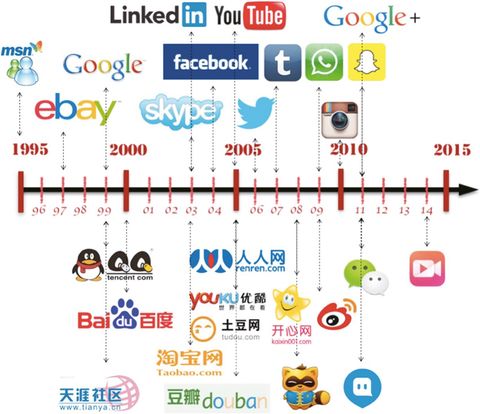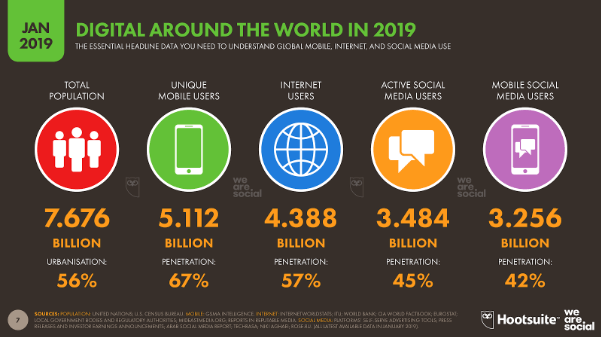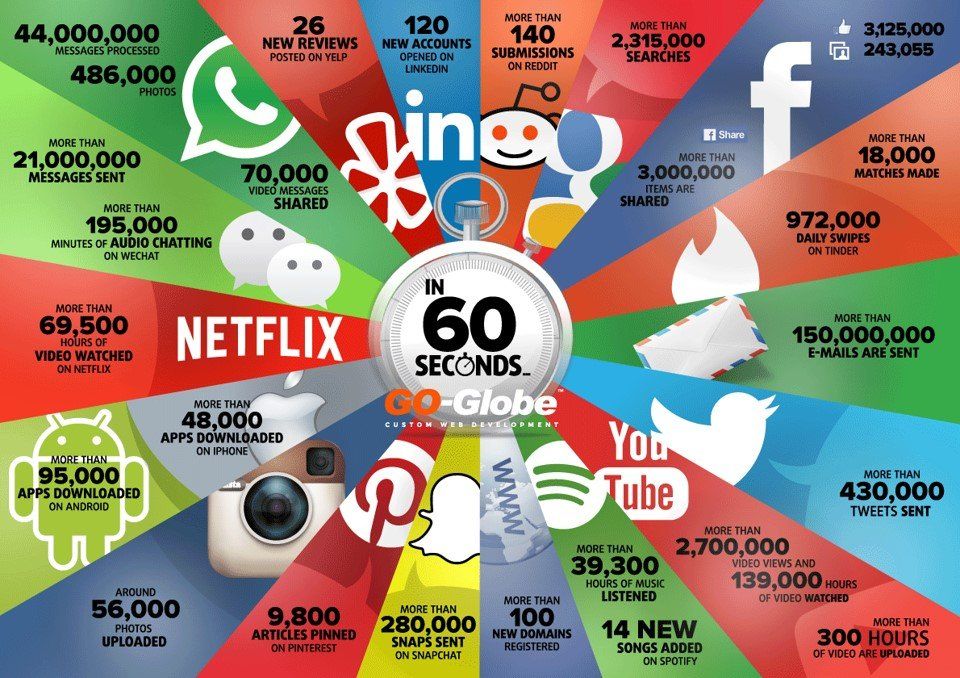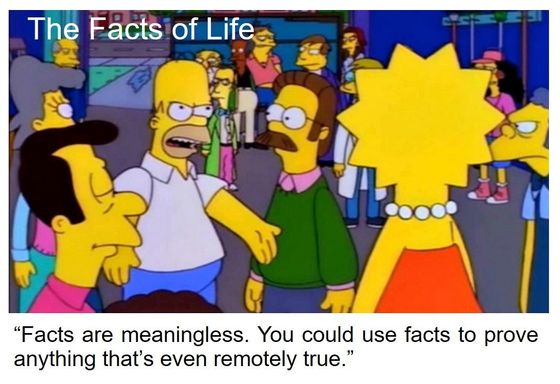Resources: Articles Etc. [OLD]
Content
1 Definitions & Origins of Terms
2 The Evolution of the Internet
3 Why Bad Stuff Happens
Democracy & Public Trust
Big Data & Artificial Intelligence
The Internet & Surveillance Capitalism
1 Definitions & Origin of Terms
According to Collins, the word ‘fake’ was originally used as part of the slang spoken among criminals who wanted to conceal their activities from prying ears — it started out as a verb, and referred to producing a counterfeit or doctored version of something, such as money or documents. The term possibly originated from the Italian verb facciare ‘to make’.
The association of ‘fake’ with ‘news’ appears to have started out in the field of comedy, in shows such as Jon Stewart’s 'The Daily Show', but around 2005 the term began to be applied to false news stories that were circulated with malicious intent rather than as satire. It shot to prominence during the 2016 US presidential campaign when pundits noted the large number of websites broadcasting false stories under the guise of 'news'.
In November 2017 Collins
made ‘fake news’ its ‘Word of the Year’. It defined the term as: “false, often sensational, information disseminated under the guise of news reporting.” This followed Oxford Dictionaries
selecting ‘post-truth’ as its Word for 2016. It defined 'post-truth' as “relating to or denoting circumstances in which objective facts are less influential in shaping public opinion than appeals to emotion and personal belief.”
The term 'post-truth' seems to have been first coined bySteve Tesichin a 1992 essay in The Nation
magazine.
Words of the Year

You get an indication of the prevalence of ‘fake news’ and misinformation from the words chosen by the major dictionaries to represent recent years — at least in English! The other chosen words paint a pretty bleak picture of the public mood.
2 The Evolution of the Internet
a) Timeline
The timeline
below identifies some of the main hardware and software developments that have brought us the internet and social media.


The graph to the left shows how the social media landscape has developed in China; the one below
divides the web's development into nine 'epochs'.
b) Number & Distribution of Internet Users

c) What Happens in a Minute?
To understand the challenge of controlling what appears on the internet / social media platforms, it is important to aware of the sheer volume of material that is being uploaded. Here's what happens in a typical minute:

This graphic is from Visually.
3 Why Bad Stuff Happens on Line
In 'The World Wide Villain' — part of a series on BBC Radio 4
aired in Aug 2017 under the title 'Aleks in Wonderland: the Story of the internet' — Aleks Krotoski explains why there is so much bad stuff on the internet:
“We are dealing with non-standardised, complex systems all connected to a single giant super highway; a superhighway that is not checking to see who’s travelling on it, because, well, it was built that way. It’s a heady mix, technology and human behaviour… [So] why does bad stuff happen on line? because the net is a reflection of wider society. It’s an amplification of pre-internet human culture, drive and behaviour. That’s why there’s so much porn and gambling on line. That’s why fake news exists. That’s why we live in echo chambers. That’s why it’s used for propaganda; it’s used for bulling; and it’s used to con innocent people. The internet didn’t invent these things, it just made them much, much easier to find. The web has long been described as a great democratiser that gives everyone a free and open publishing platform to share whatever they want with everyone that wants to see it. Thank you Sir Tim Berners Lee.”
Sir Tim has grown increasingly concerned about what has happened to his world wide web: in Nov 2018 he launched a global campaign to “save the web from the destructive effects of abuse and discrimination, political manipulation, and other threats that plague the online world.” Humanity, he said, is “functioning in a dystopian way.” [2]
In March 2019 (on the 30th Anniversary of the WWW) Sir Tim identified three issues that are harming the web:
- malicious activity such as hacking and harassment;
- problematic system design such as business models that reward clickbait;
- unintended consequences, such as aggressive or polarised discussions.
You can read more about his Foundation, For the Web, here.
Unfortunately, tackling these problems is highly problematic, and especially when it comes to debunking myths and misinformation:
“Unless great care is taken, any effort to debunk misinformation can inadvertently reinforce the very myths one seeks to correct. To avoid these 'backfire effects', an effective debunking requires three major elements. First, the refutation must focus on core facts rather than the myth to avoid the misinformation becoming more familiar. Second, any mention of a myth should be preceded by explicit warnings to notify the reader that the upcoming information is false. Finally, the refutation should include an alternative explanation that accounts for important qualities in the original misinformation” [Cook et al]

OLD MATERIAL on Articles, Books & Guides
This section is currently being reworked...
a) Truth, Lying & Deception
•
Julian Baggini [2017]; 'A Short History of Truth: Consolations for a Post-Truth World', Quercus Publishing
•
Robert Hutton [2014]: ‘Would They Lie to You? How to spin friends and manipulate people’, Elliott & Thompson
•
Michiko Kakutani [2018]: 'The Death of Truth: Notes on Falsehood in the Age of Trump', Harper Collins
•
Peter Oborne [2005]: ‘The Rise of Political Lying’, Simon & Schuster UK
• Robert Trivers [2011]: ‘Deceit and Self-Deception: fooling yourself the better to fool others’, Allen Lane
• Bernard Williams [2002]: ‘Truth and Truthfulness: An essay in genealogy’, Princeton University Press
• Bernard Williams [2002]: ‘Truth and Truthfulness: An essay in genealogy’, Princeton University Press
See also Section 3 below, which includes material we have prepared on the meaning of truth.We've also included a separate page
which explores some of the techniques ad agencies and internet companies use to grab our attention and keep us scrolling through their websites.
b) Denialism & Conspiracy Theory
•
David Aaronovitch [2009]: ‘Voodoo Histories: The role of conspiracy theories’, Jonathan Cape
•
Rob Brotherton [2015]: ‘Suspicious Minds: Why we believe conspiracy theories’, Bloomsbury Publishing
•
Karen Douglas, Robbie Sutton & Aleksandra Cichocka [2017]: 'The psychology of conspiracy theories', Current Directions In Psychological Science
• Keith Kahn-Harris [2018]: 'Denial: the unspeakable truth', Notting Hill Editions
• Michael Specter [2010]: 'Denialism: How irrational thinking harms the planet and threatens our lives', Duckworth Overlook
• Michael Specter [2010]: 'Denialism: How irrational thinking harms the planet and threatens our lives', Duckworth Overlook
c) Scientific Misconduct& Fraud
Scientific misconduct is the violation of the standard codes of scholarly conduct and ethical behavior in the publication of professional scientific research (see Wikipedia for more information on this — who should be held responsible, the impact on science, etc.).
•
Stephen Buranyi [2017] 'The Hi-tech War on Science Fraud' The Guardian
•
Enago Academy [2018]: 'Ten Types of Scientific Misconduct'
•
The Lancet [1999]: 'The COPE Report: Coping with Fraud'.
The Canadian journal 'The Scientist' regularly publishes articles on scientific misconduct.
d) Online Information & Social Media
•
Lydia Harriss & Katie Raymer [201]: 'Online information and fake news,' POSTnote 559, Parliamentary Office of Science and Technology. London, UK: House of Parliament.
•
Sander van der Linden [2017]: 'Beating the Hell Out of Fake News,' Ethical Record, October-November-December 2017, Vol.122 No.6]
• Timothy Garton Ash [2017]: 'Answer to populist politics and fake news might lie in public service media', The Straits TimesYou will find videos exploring the issue of online information and social media on the Videos Page.
e) Big Data & the Health of the Internet
•
Andrew Keen [2015]: 'The Internet is not the Answer', Atlantic Books
• Aleks Krotoski [2013]: 'Untangling the Web: What the internet is doing to you', Faber & Faber
• Solana Larsen (Ed.) [2017] 'Internet Health Report', Mozilla
• Edward Lucas [2015] 'Cyberphobia: Identity, Trust, Security and the Internet,' Bloomsbury Publishing
• Viktor Mayer-Schonberger & Kenneth Cukier [2013] 'Big Data: A revolution that will transform how we live, work and think', John Murray Publishers
• Aleks Krotoski [2013]: 'Untangling the Web: What the internet is doing to you', Faber & Faber
• Solana Larsen (Ed.) [2017] 'Internet Health Report', Mozilla
• Edward Lucas [2015] 'Cyberphobia: Identity, Trust, Security and the Internet,' Bloomsbury Publishing
• Viktor Mayer-Schonberger & Kenneth Cukier [2013] 'Big Data: A revolution that will transform how we live, work and think', John Murray Publishers
f) Fake News & Bullsh*t
•
Liliana Bounegru et al [2017] 'Field Guide to Fake News,' First Draft News
•
John Cook & Stephan Lewandowsky [2011] 'The Debunking Handbook,' University of Queensland, Australia
•
Harry Frankfurt [2005]: 'On Bullshit', Princeton University Press
•
Stephen Law [2011]: 'Believing Bullshit: how not to get sucked into an intellectual blackhole', Prometheus Books
•
Claire Wardle (2017):'Fake news. It’s complicated.' First Draft News
(16 February 2017)
g) Post Fact / Truth
•
James Ball (2017):'Post-Truth: How Bullshit Conquered the World', Biteback Publishing
• Matthew D'Ancona [2017] ‘Post-Truth: The New War on Truth and How to Fight Back,’ Ebury Press
• Evan Davis (2017): 'Post-Truth: Why We Have Reached Peak Bullshit', Little, Brown
• Peter Pomerantsev [2015]: ‘Nothing is True and Everything is Possible’, Faber & Faber
• Matthew D'Ancona [2017] ‘Post-Truth: The New War on Truth and How to Fight Back,’ Ebury Press
• Evan Davis (2017): 'Post-Truth: Why We Have Reached Peak Bullshit', Little, Brown
• Peter Pomerantsev [2015]: ‘Nothing is True and Everything is Possible’, Faber & Faber
Here's a selection of the titles we are hoping to evaluate (and many more are shown at the bottom of the page — and there are more...) They deal with 'post truth', 'information warfare' and 'the dark web'. They are not listed in any order.
Scottish poet, Elvis McGonagall has recently written a wonderful poem
entitled 'Gimme Some Truthiness'for a 'A Brief History of Truth' [BBC Radio 4, 22 July 2017].
h) The Collapse in Trust / Age of Anger
•
EBU [2018]: 'Trust in Media 2018', European Broadcasting Union
•
Richard Edelman [2017]: ‘An Implosion of Trust’, The 2018 Edelman Trust Barometer
•
Andrew Harrison [2017]: 'Can you trust the mainstream media? The Guardian
(9 August)
• Pankaj Mishra [2017]: 'Age of Anger: a history of the present' Allen Lane
i) Information Warfare & Cyber Security
“A new type of war has emerged, in which armed warfare has given up its decisive place in the achievement of the military and political objectives of war to another kind of warfare - information warfare.”
V. Kvachkov [Russia’s Special Purpose Forces]
•
Christopher Paul & Miriam Matthews [2016]: 'The Russian ‘Firehose of Falsehood’ Propaganda Model' RAND Corporation [2]
• Keir Giles [2016]: 'Handbook of Russian Information Warfare', NATO Defense College (Fellowship Monograph No.9) [3]• Andrew Weisburd, Clint Watts & JM Berger [2016]: 'Trolling for Trump: How Russia Is Trying to Destroy Our Democracy' War on the Rocks
• Keir Giles [2016]: 'Handbook of Russian Information Warfare', NATO Defense College (Fellowship Monograph No.9) [3]• Andrew Weisburd, Clint Watts & JM Berger [2016]: 'Trolling for Trump: How Russia Is Trying to Destroy Our Democracy' War on the Rocks
j) Other Publications
Here are more titles we are hoping to evaluate in time: they deal with 'lies & dishonesty', 'post truth', 'information warfare' and 'the dark webb':
•
Daniel J. L evitin [2017]: 'Weaponized Lies: How to Think Critically in the Post-Truth Era', Dutton Books [previously published as 'A Field Guide to Lies']
• Adam Macqueen [2017]: 'The Lies of the Land: A Brief History of Political Dishonesty,' Atlantic
• Craig Silverman (Ed) [2017] 'Verification Handbook: an ultimate guideline on digital age sourcing for emergency coverage'
• Siva Vaidhyanathan [2017]: 'Anti-Social Network' (a book about Facebook due out later this year).
• Adam Macqueen [2017]: 'The Lies of the Land: A Brief History of Political Dishonesty,' Atlantic
• Craig Silverman (Ed) [2017] 'Verification Handbook: an ultimate guideline on digital age sourcing for emergency coverage'
• Siva Vaidhyanathan [2017]: 'Anti-Social Network' (a book about Facebook due out later this year).
If anyone would like to comment on any of these publications to help with this assessment we'd really appreciate it. Many thanks!
Notes
1 Please note that with respect to website links, we have a simple rule — no more than 10 references per topic (and preferrably 5). If you'd like to suggest an article or website for inclusion, please let us know which of the other papers you think we should replace. (We can't guarantee to accept your suggestions, but we will consider them.) Also, we do not necessarily endorse what is written in these linked sites . Readers should use their own judgement — please let us know if you think any of the material is inappropriate. Thank you!
2 Sir Tim is not alone: other leading internet pioneers have expressed concern at the way the web is being used today to spread untruths and peddle hate. These include Vint Cerf (‘father of the internet’), Steve Wozniak (Apple’s co-founder) & Jaron Lanier (virtual reality pioneer/guru).
2 Sir Tim is not alone: other leading internet pioneers have expressed concern at the way the web is being used today to spread untruths and peddle hate. These include Vint Cerf (‘father of the internet’), Steve Wozniak (Apple’s co-founder) & Jaron Lanier (virtual reality pioneer/guru).

